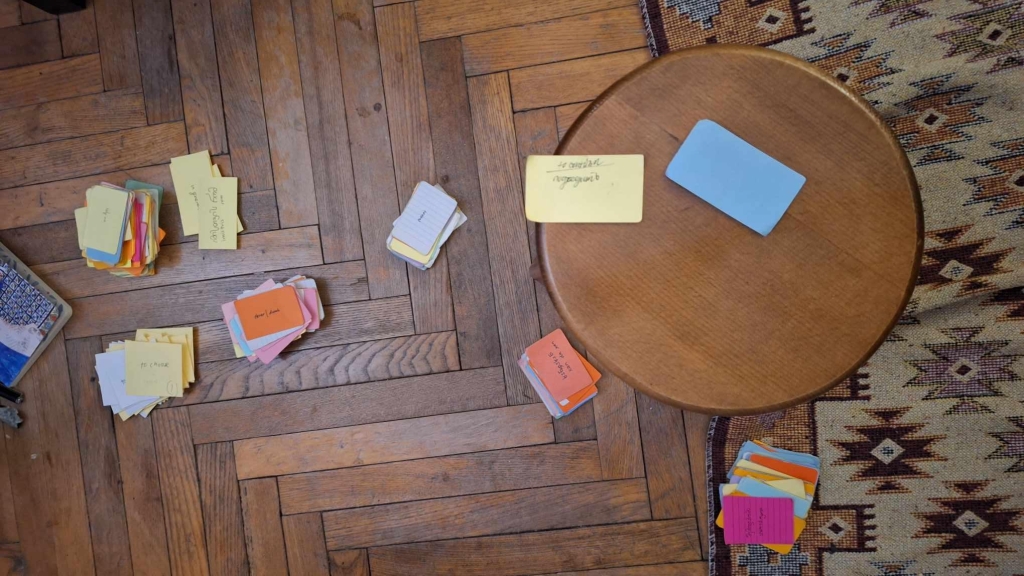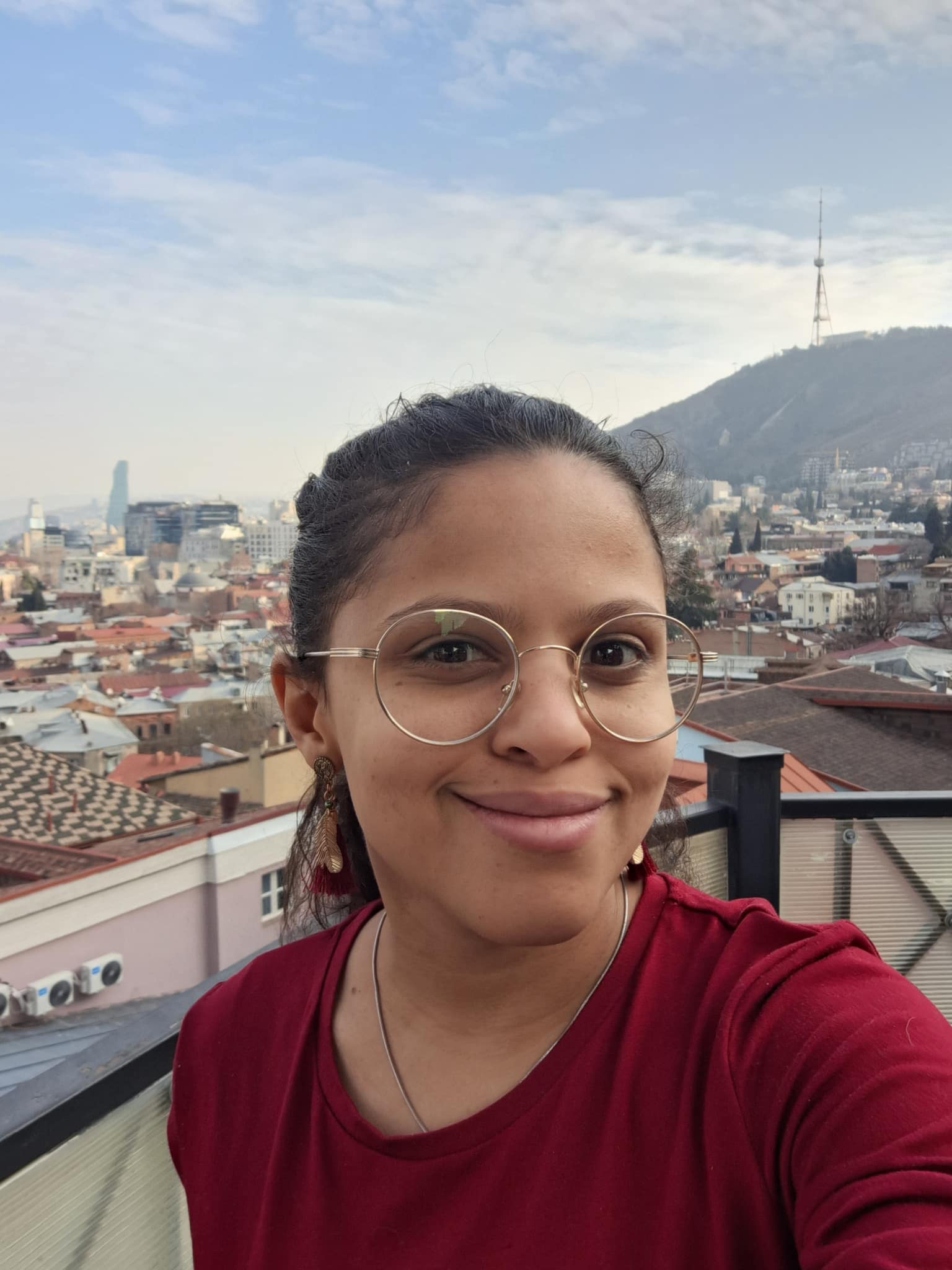Okay. Full disclosure. I have a bit of a problem.
Of course, my dear husband feels that it is more than a bit of a problem, considering he is the one who has to most often deal with them. They are spread across the tables, randomly stuffed under furniture, and in bags. I am even positive that he found one in the fridge once—not sure how I managed that.

I started actively using flashcards after my first trip to Russia, and I would say that their use has been one of the main reasons for my progress in the language.
However, unfortunately, the same can’t be said about my Georgian.
Sure, to be fair, I can certainly blunder my way through most everyday interactions here. But the truth is, I learned more Russian in a year in Chicago than I learned Georgian after eight years of living full-time in Tbilisi—and believe me, it wasn’t for lack of flashcards.
So, what is the reason? Why have I struggled to improve despite being in the country, the quote on quote the most immersive environment? While there are several external factors that admittedly make learning Georgian difficult, I want to focus on those related to my personal intent—factors that ultimately come down to me:
Deliberate Exposure
One thing I have learned is that immersion is ultimately a choice. When I lived in Chicago one of the reasons why I found progress in Russian is because I sought out places to practice my language skills. I frequented all of the shops in Skokie, and became somewhat of a mini-celebrity at the banya in Wicker Park. Within the confines of an American city, I for the most part created a Russian life for myself.
In Georgia, it has been quite the opposite. I teeter between the English and Russian speaking communities by using Georgian only as transport between the two. I work in English and speak to my mother-in-law in Russian. My days are spent hanging out at the Russian bookstore, and my nights are spent hosting English trivia. Despite being quite literally surrounded by Georgian, in my life I don’t use it as much as I would like.
In the case of our students, I remind them of this as well. When they come and study Russian here, they sometimes forget about their part in exposing themselves to the language. It is one thing to stay at a homestay, but are they seeking out conversations with their host families? In between lessons, where do they decide to go? Who do they decide to spend their time with? What music do they listen to or movies do they watch?
All of these are factors in terms of having real and consistent exposure, and ultimately it is a choice.
Purposeful Practice
If the abundance of flashcards is any indication, I am kind of a fein for words. Early on in my Russian journey I was spitting out words like досадно (annoying) and фитиль (wick). However, grammar was always–and still is in many regards–my weakness. Most of the time my vast vocabulary and fast talking could mask my mistakes. I thought that I could have the same approach in Georgian.
I could not.
Russian is a bit more forgiving than Georgian when it comes to grammar, specifically the verbs. It is very difficult to put any form of a simple sentence together without studying the rules behind Georgian verbs. And just as I had to address my gaps in understanding Russian cases and noun declension rules, I’ve only started to make progress in Georgian after deliberately honing my practice to target my grammatical weaknesses.
I give this same advice to our students. For them, it often is the opposite problem to what I have. Many bemoan their lack of vocabulary, and I have to remind them that vocab building is not typically achieved in grammar exercises. It is important for them to show intent in learning new words by engaging in activities that force them to do so.
Consistency
It is not as if I never practice Georgian. But I confess, when living in a country, the common mantra for practicing the language becomes ‘I’ll do it tomorrow,’ and I am no exception. When I first started studying Russian, my flashcards were like a limb. I was studying them on the train, on breaks at work, and, even to my friends’ horror, at the bar when we would go out. While I am not suggesting being as ridiculous as I was, there is certainly value in seizing as many opportunities as possible to practice a target language. For myself, I am trying to be better at not studying thirty new words and then waiting another thirty days before picking them up again.
Intrinsic Motivation
The why is important. With Russian, it felt very much out of necessity that I studied Russian. I had colleagues who didn’t speak English and I was determined to be able to communicate with them. On top of that, with Russian being still a lingua franca in many countries, it was easy for me to justify the benefits of putting in so much time into studying myself to tears to master the language.
I have, despite living here, realized that the same can’t be said for me in Georgian. Simple communication is not enough of a motivator for me. In my day to day life, I can already communicate with most people I meet. So, I have had to recently assess my why and I have thus realized for me it is more about understanding the culture and feeling closer to my spouse and my friends. That has translated into involving them into my studies. I go to tastings with friends, attend lectures and film viewings, and sometimes I even have the pleasure of forcing my husband to run through my flashcards with me. By involving my “why” into my studies I have certainly seen more improvement and enjoyment in Georgian studies.
Regardless of your why, learning with intent is key. Without intent, it is difficult to be effective and remain engaged as you progress in the language. As long as you have intent, the method you use won’t matter too much.
However, if you decide to use flashcards and you are coming to Georgia, make sure to bring them with you. They don’t sell them here.
And bring me a pack too, perhaps.


